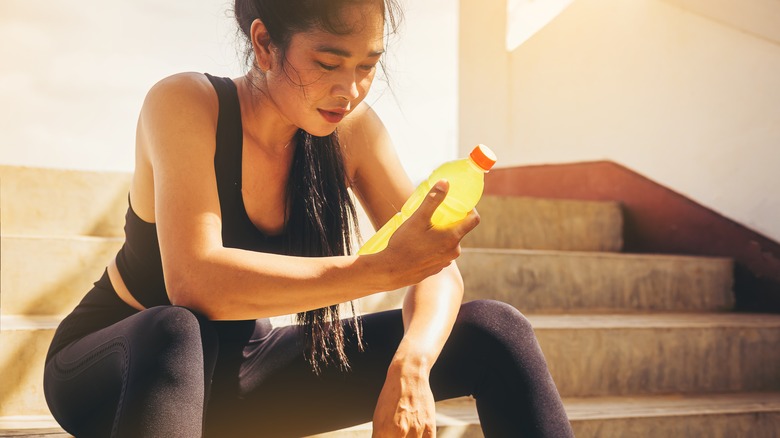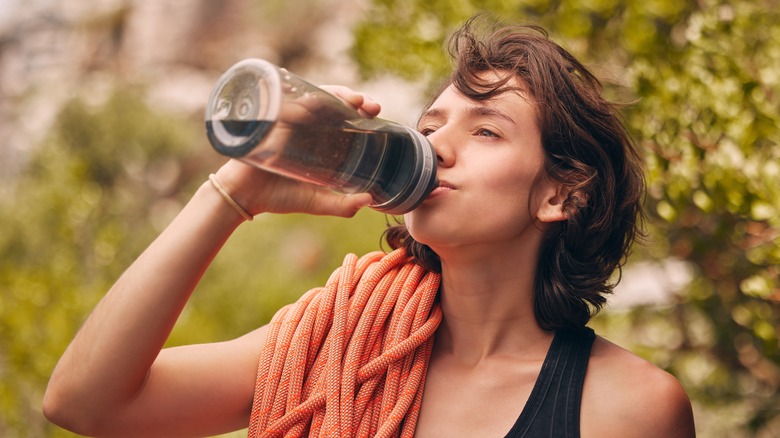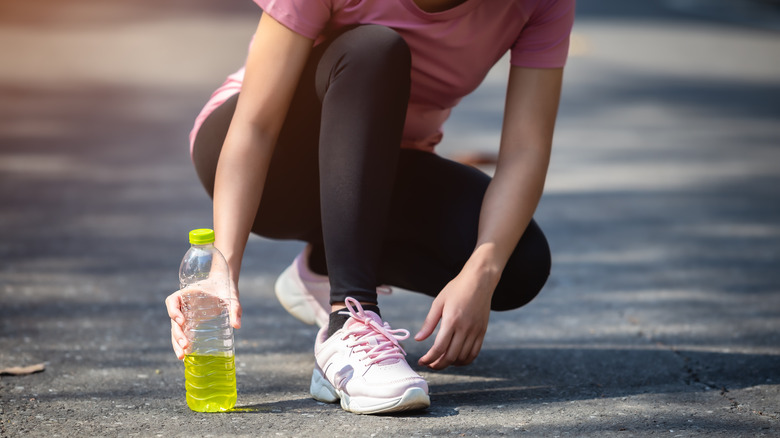How To Ensure You're Getting Enough Electrolytes On The Keto Diet
The keto diet is used to help burn fat, but many people experience symptoms known as the keto flu. While not actually the flu, it does cause many different symptoms like fatigue, nausea, trouble sleeping, and headaches, just to name a few, according to Harvard Health Publishing. While researchers aren't exactly sure why some people feel worse than others on a low-carb diet, some people feel better after increasing their intake of electrolytes.
One of the reasons you need more electrolytes on the keto diet is that your body keeps less water while on low carbs. More water is removed from your body, including electrolytes, explains David Hastie, Managing Director of Ionocore (via LinkedIn). Of course, switching from the standard American diet of lots of carbs and saturated fat to a diet of low carbs and clean fats can also make you lose important electrolytes, like sodium and potassium.
When on the keto diet, make sure that you're getting enough electrolytes.
Electrolytes are essential minerals
Electrolytes are essential minerals that contain an electric charge for the body that primarily get flushed out of your system through sweat and urine. This is why many athletes will be seen drinking a Gatorade or similar drink to restore their electrolytes. They are vital for the functioning of key areas of the body, according to Cedars Sinai. For example, they keep you hydrated, keep muscle contractions in check, balance your body's pH levels, and even play a role in the functioning of your nervous system.
You receive electrolytes from what you eat and drink, but you don't have to worry about ingesting too many electrolytes through foods. Your kidney does a good job of filtering out excess electrolytes and flushing them from your body in urine, explains Cleveland Clinic.
The most important electrolytes include sodium (salt), calcium, potassium, chloride, phosphate, and magnesium, according to MedlinePlus.
If you're on the keto diet, you probably need more electrolytes than most people. There are a few simple ways for replenishing your supply.
Eat and drink more electrolytes
Just because you're on a keto diet doesn't mean you can't eat any carbs at all. Most people still eat a small number of carbs, usually under 50 grams per day, according to Carb Manager. The keto diet is a low-carb diet, not a no-carb diet. This means there is room for foods and drinks to get in your daily intake of electrolytes.
Coconut water is a fantastic source of potassium, about 13% of your daily value, explains Insider. If you have leftover carbs in your diet, bananas are also a great source of potassium. White turkey meat, around 100 grams of it, contains half your daily value of sodium. And, of course, dairy products like milk and yogurt contain high amounts of calcium.
Possibly the easiest way to increase your electrolyte intake is to add electrolyte tablets to make your own electrolyte drink, explains Healthline. While the exact amount of electrolytes will depend on the brand, they are a portable and inexpensive way to ensure you're getting enough electrolytes in your diet.



